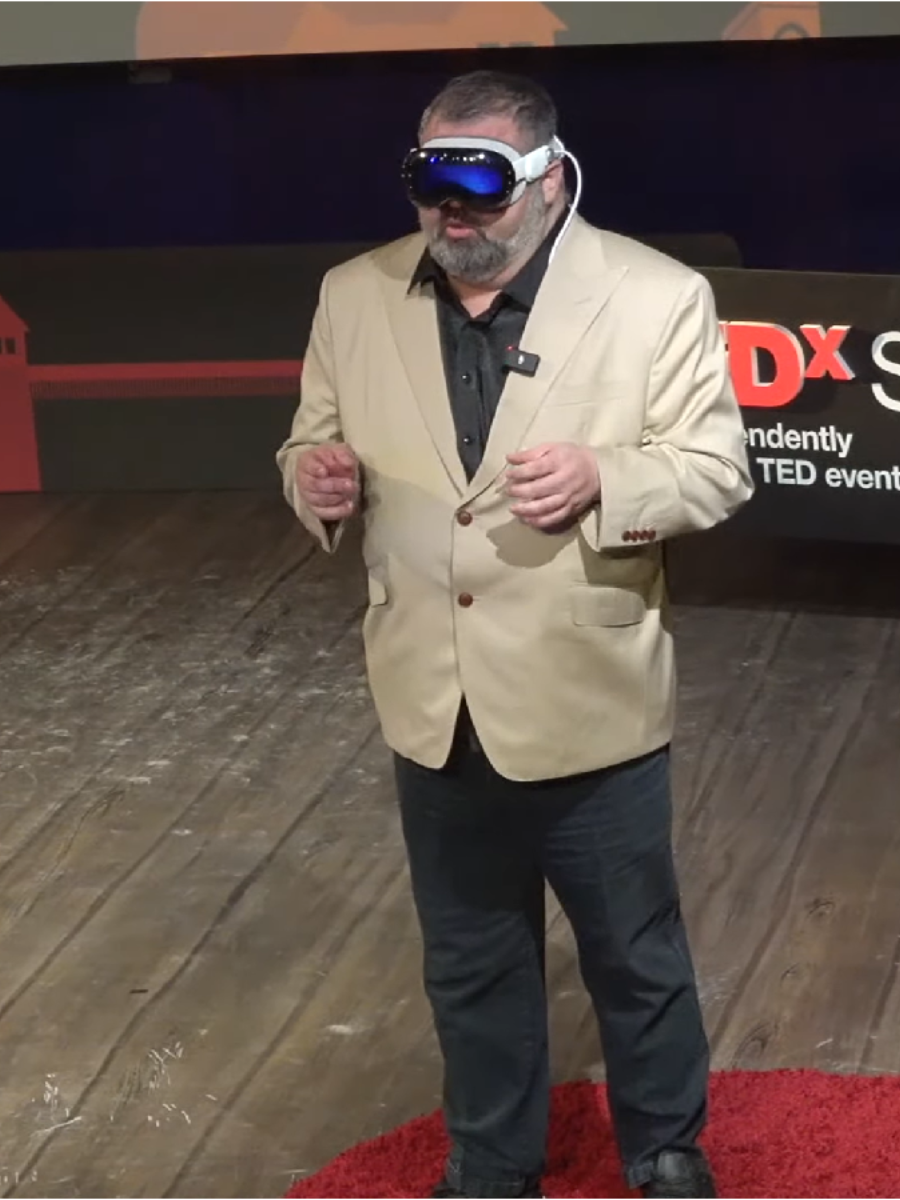In a striking address at TEDxSwansea, technology transformation expert Sam Sammane challenged the prevailing narrative surrounding artificial intelligence implementation, arguing that the relentless pursuit of AI-driven productivity is extracting an unprecedented toll on human mental wellness and social connections.
Sammane’s presentation exposed a growing paradox in modern workplace dynamics: while AI promises enhanced efficiency and productivity, it simultaneously contributes to workplace isolation and mental exhaustion.
‘Our mental health has become the currency’
Drawing from extensive experience in digital transformation consulting, Sammane highlighted how the always-on nature of AI systems has created unrealistic expectations for human performance.
“AI is designed to run without rest,” he observed, pointing to a fundamental mismatch between machine capabilities and human limitations.
The technology expert shared a revealing anecdote about a programmer friend, referred to as Arya, who developed an advanced AI system designed to understand emotions.
Despite creating technology capable of simulating emotional intelligence, the programmer found herself increasingly isolated. This case study, Sammane explained, exemplifies a broader pattern in technology-intensive workplaces where technical achievement often comes at the cost of human connection.
“What we have failed to recognize is that our mental health has become the currency with which we buy this productivity,” Sammane stated, addressing the hidden costs of AI integration in contemporary work environments.
This observation comes at a time when organizations worldwide are accelerating their AI adoption strategies, often without fully considering the human implications.
When AI implementation meets corporate reality
Sammane’s perspective on AI implementation challenges conventional corporate thinking, particularly regarding workforce replacement. He recounted a conversation with a senior executive who approached him for an AI transformation strategy.
When presenting a plan focused on empowering existing employees rather than replacing them, the executive’s disappointed response revealed a common misconception about AI’s role in business transformation.
“I never forget the look of disappointment on his face,” Sammane recalled, describing the executive’s reaction to learning that the proposed AI implementation wouldn’t reduce headcount.
This interaction underscores a prevalent mindset that Sammane argues needs to change: viewing AI primarily as a cost-cutting tool rather than an empowerment mechanism.
A new framework for AI integration
To address these challenges, Sammane introduced the concept of “human AI augmentation,” a framework that positions artificial intelligence as a complement to human capabilities rather than a replacement.
This approach emphasizes maintaining human agency in technology-driven environments while acknowledging the unique value of human qualities such as empathy, creativity, and emotional intelligence.
Modern technology’s endless cycle
The presentation also addressed the broader implications of AI integration for society.
Sammane noted that while previous generations of technology had natural limitations – such as television channels signing off or video games becoming repetitive – modern AI-driven systems lack these built-in boundaries. This absence of natural limits requires a more conscious approach to technology use and integration.
Sammane also emphasized that successful AI implementation must prioritize human wellbeing alongside technological advancement.
“The future is not about choosing between AI and Humanity, it’s about finding a way for both to thrive together,” he stated, advocating for a more balanced approach to technological integration.
The talk concludes with a call to action for business leaders and technology implementers to reconsider their approach to AI adoption.
Sammane’s final statement, “We are not the products of the machines we create, we are the architects of the world we imagine,” serves as a reminder of human agency in shaping technology’s role in society.
Charting a human-centric future
As organizations continue to navigate the complexities of AI integration, Sammane’s perspective offers a framework for maintaining human-centric approaches to technological advancement.
His insights come at a crucial time when businesses worldwide are seeking to balance innovation with employee wellbeing and organizational health.
As AI continues to evolve and integrate further into workplace operations, Sammane’s message about maintaining human connection and mental wellbeing in the age of AI remains particularly relevant.
| Global Entrepreneurs Magazine News Team




